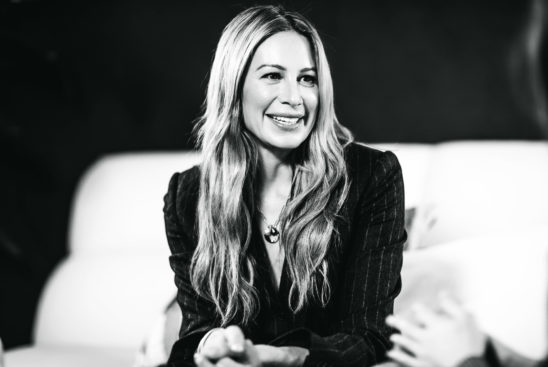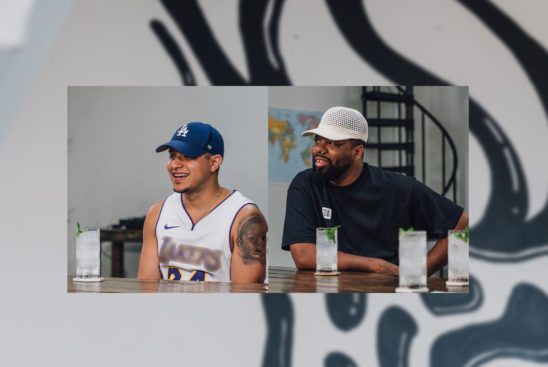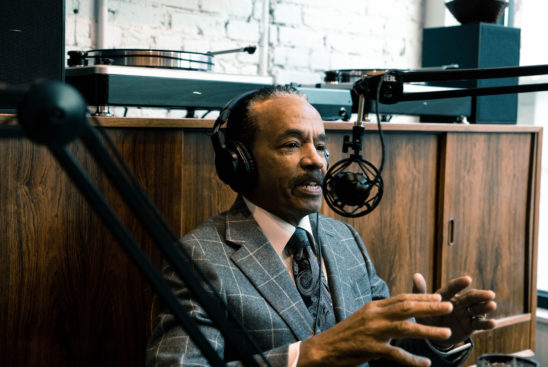The number of individuals who passionately live to serve others is few and far between, no doubt. The founder of Chicago-based Culinary Care is one such chick. The nonprofit she created at age 23 sources and delivers meals to cancer patients and their families in times of most immediate need— over 4,000 meals to date. A true gem to the city, we stole a moment to sip Sofia bubbly and celebrate the woman who is making an impact.
Congratulations on the three year anniversary of Culinary Care. Cheers!
Cheers!
When was the exact moment that you decided to take action and start the organization?
It was actually on the Purple Line Express. It’s a funny story. [My boyfriend] Adam and I were on our way home from work. I was going to a bunch of orientations for volunteer opportunities and was feeling uninspired by the [options] I was hearing about. So we sat on the train doing research and tried to figure out why we couldn’t find any opportunities that allowed us to bring meals to cancer patients. We found out that nothing existed and we sat on the train and did word association to figure out our [nonprofit] name. We were on the train to Wilmette at the time– a good 45 minute ride. The L is the place for inspiration.
After that train ride, what was the first step you took?
We did some more research online and found out that a place like this truly didn’t exist. Then we [knew we] had to be a 501(c)(3) organization as a nonprofit. My dad was actually a partner at the law firm Mayer Brown. We ended up emailing his colleague and good friend at the firm. We said, “This is our idea, what are your thoughts about Mayer Brown getting involved?” He said, “I think this is an amazing idea. Let’s bring you in and talk to the head of our pro bono department.” Then from there it got a lot more serious. They weren’t going to sign us up just because my dad was a partner. We had to bring them a business plan. We had to have all the ideas fleshed out to some degree. How were we going to raise money? What were we raising money for? It took off from there.
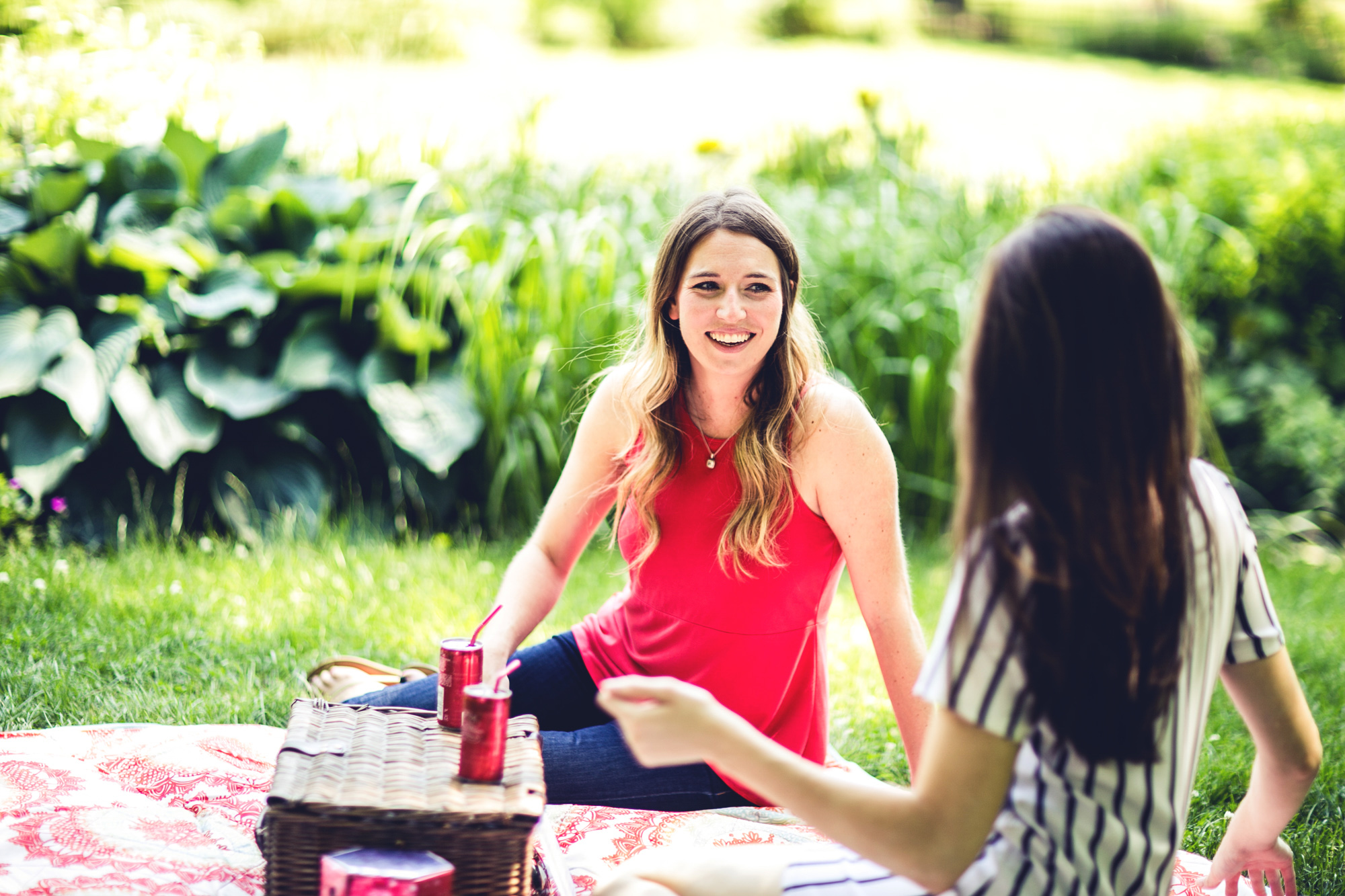

Had you ever made a business plan before?
No!
How did your family’s story inspire this journey?
In 2006 I was going into my senior year of high school and my dad was battling lung cancer. He had stage 4 lung cancer that also spread to his brain. He was in the hospital for a long time and even after that he was going to rehab, to appointments every day, to treatments and surgeries. It was a crazy time and our whole schedule was based on going to school, trying to keep up with extracurricular activities, coming home and going to the hospital. Any extra minute we had was spent with my dad at the hospital or at home. There wasn’t a lot of time for the family to go to the grocery store or get food. We were lucky to have friends and family that brought us meals every single night. There was always something waiting for us at our doorstep. I remember being super excited to see what people brought us. Everyone got really creative. It wasn’t just pasta and ravioli every single night; it was something different and unique to their family. It meant a whole lot to my family. There was something in that that just resonated with me. It’s surprising how many people go through this– my story is such a small piece. Everybody is touched by cancer in some way– every volunteer, every patient that we serve. It’s crazy how big of a disease it really is.
What was the hardest part in the beginning when you wanted to bring your idea to life?
I think believing in myself. With business plans, you just have to get them done and you learn along the way. In terms of difficult feelings and internal struggles, it was really taking that first step and knowing that I could do it and work towards it. You have to be passionate about your project. I knew how much it meant to my family and me to have those meals. So that helped a lot. I know that I work really hard and am passionate about it. With those things combined it helped me believe in myself. It was also about getting other people to believe in me. Until the media started picking up our story it was just a lot of pats on the back. [At first] people thought this was just me having some volunteer experience. Everyone was just like, “This is so nice of you. What a good thing you’re doing.” It wasn’t a real organization to anyone until we got press for it. Then all of a sudden we were in the news and they’re like, “I’m so excited to be a part of this.” It becomes real when other people think it’s real. That was the most interesting part.

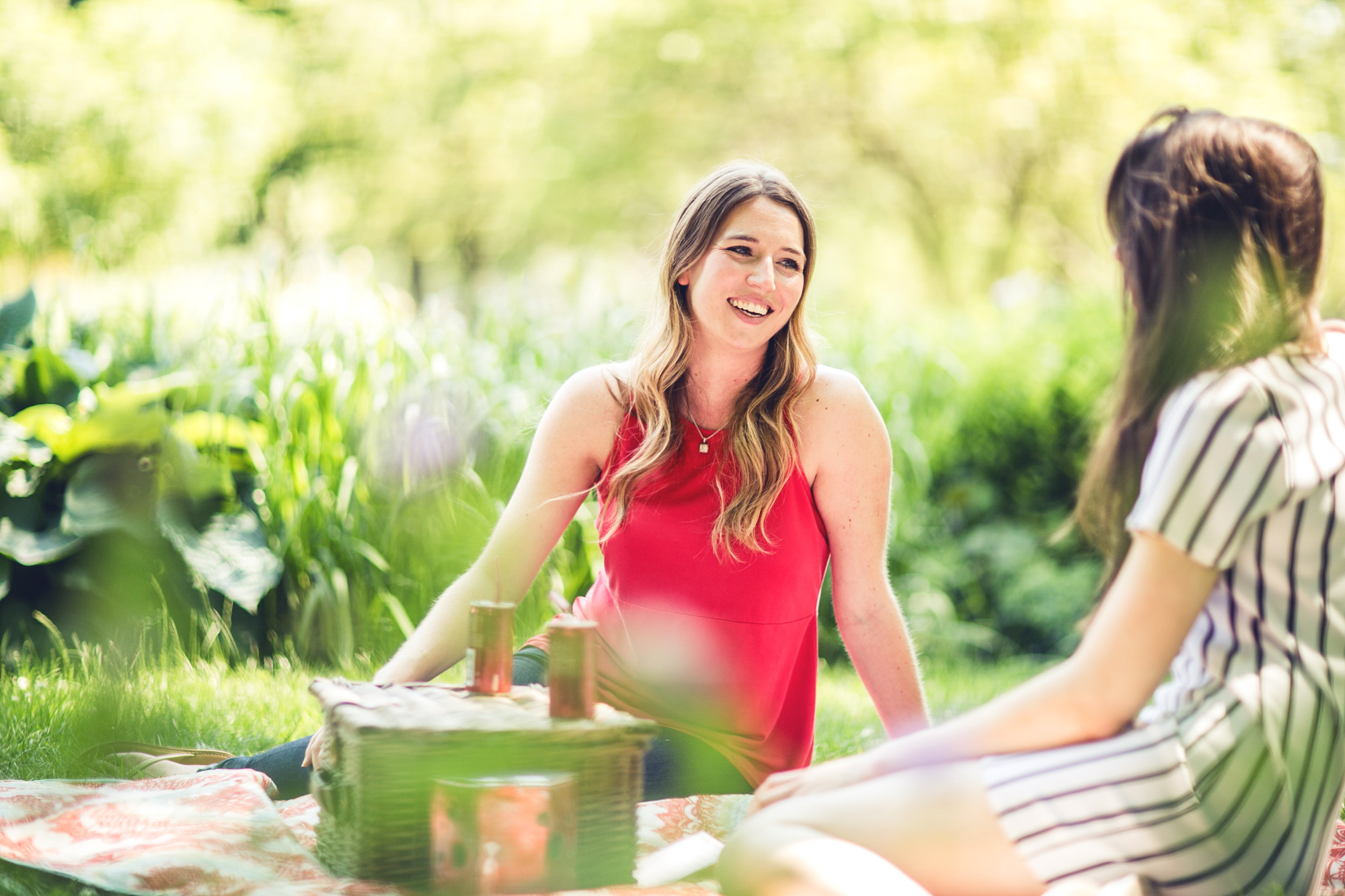
How do you pick yourself up when you feel like giving up?
I still have those days. I don’t think they ever end for anyone. There are always those days that are hard. I think the hardest part is that work is never done. It’s never finished. My to-do list is never-ending. There are so many programs and things I want to accomplish and all of it takes so much time. That’s the biggest thing that gets me down. In terms of picking myself up, I usually take some time to relax and get away from it all and then look back on everything. I think that’s something I don’t do enough— taking a minute to understand everything we’ve accomplished so far. When I talk to other people about our mission, those meetings are always inspiring to me. People are always so blown away by what we’ve accomplished, and to me there’s just so much more to do. I have to take a step back and look at it from the outside and see how much we’ve grown over the past three years. I think it’s easy to forget that work is hard. So it’s easy to beat yourself up over it.
How has the charity evolved from the very beginning to what it is today?
It’s changed a lot– not in terms of our actual mission and focus, but in defining what we’re doing. When we started it was a way for my family and me to turn our experience with my dad into something positive and to grieve. That was the initial push behind it. We knew we were doing something good and it was a family activity that we could all rally around. As we started delivering meals and hospitals started jumping on board and referring patients, all of a sudden people were really excited about what we were doing. In 2014 we realized that we were part of a much bigger problem. The nutritionist that we were working with was showing us research that 1 in 5 cancer deaths is a direct result of malnutrition. A lot of the problem is that patients are going in and out of the hospital all the time and they’re absolutely exhausted. If you don’t have people that are bringing you meals and helping out in that way, you’re going to go home hungry and you just don’t eat. You don’t have the energy to cook and you’re not hungry. As a result they end up losing weight. Your body can’t fight cancer without food. Right now it’s about getting people the calories they need on a daily basis, then growing out programs and implementing a nutrition focus.
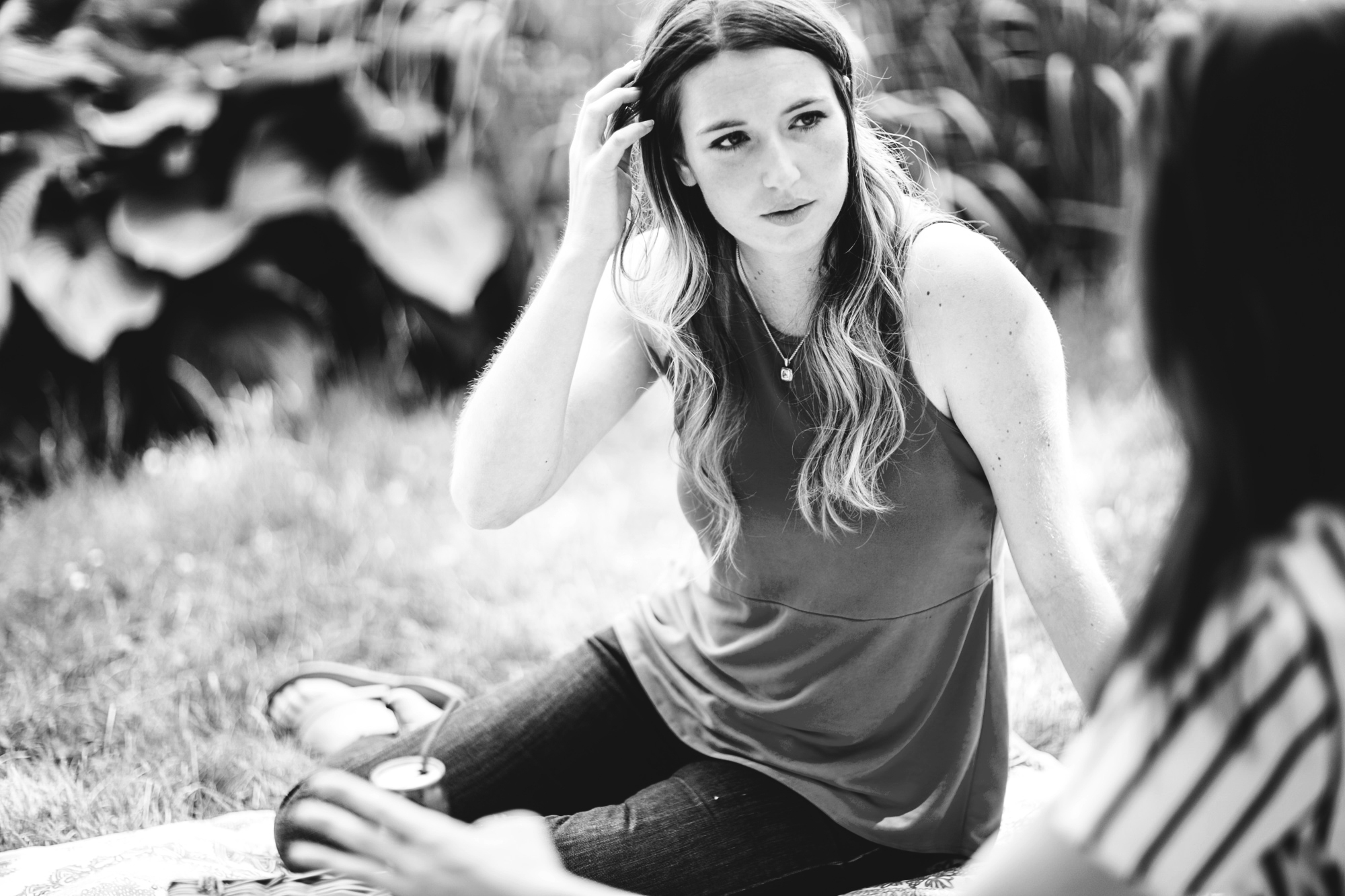
Do you remember the first restaurant that signed up?
It was Maggiano’s. We will never forget them as our first partner, especially because they are such a household name. We would say Maggiano’s is our first partner and the reaction on people’s faces was so different. They were like, “Woah, this is serious. Maggiano’s is involved. I know that name.”
Who has been your mentor along the way?
Adam, my boyfriend. He started several businesses and is so passionate about my happiness. His experience in business and starting a company – and also just believing in me and what I do – helps a lot. I’ll have these big visions and really want to take the mission from here to here, and he always helps break that down.
What advice would you give someone trying to start a nonprofit?
I would say that you have to be passionate about it and believe in what you’re doing. I just knew from my experience what these meals meant. I knew it was going to be good for other people. I also had a full-time job for a little over two years while starting it. I would say that that was the best way to start a business. It gives you time to figure it out. I didn’t have to worry. For the first year and a half we didn’t make any money. When you’re for-profit, you can have this great idea and pitch investors and if they feel like they can get a return on it they’ll invest millions of dollars and that’s how you keep growing and getting through. For nonprofits you have to do the work first and then the funding comes. It’s also a lot of networking and who you know. We had to figure out what the program was and how we’re going to work. There was no rushing into it. I was able to grow organically.

Does networking come easily to you?
My background is in public relations and that’s helped me a lot in terms of growing the organization and networking. I’m pretty fearless when it comes to reaching out to people. If I want to know something about someone or have coffee with them or a quick phone call, I have the experience to set up a pitch or send out that email. What’s the worst that can happen? Either they don’t answer you or they say “No.” In the nonprofit space, no one is going to be malicious about it. The worst answer I get was, “You’re doing great work, it’s just not a good fit for us right now.” Being able to pick up the phone is good for any networking. You have to be a little fearless about it.
If you were to sit down with someone who has a successful nonprofit, what would you ask them?
I would want to ask them about their friction points and how they got through them. Every business has to worry about how to go from one employee to five, five employees to 10, 10 to 50. As you’re growing, there are certain friction points that you run into. In the nonprofit world, you can’t go out and ask an investor for more money. You have to raise it. How did you get from point to point each step of the way?
How has the community supported your endeavor?
Across the board Chicago has been an amazing city for starting something. The entrepreneurial spirit is here and everybody is very supportive of people starting businesses, especially women as well. On top of that, there are so many amazing restaurants here. Since that’s the focal point of what we do, [it’s been great] having the restaurant community rally around our mission. We have 20 or so restaurant partners in Chicago so far. That’s been amazing to have. Then there’s also the media. Everyone has been so supportive and willing to share our story and excited to get involved– even businesses and corporations. That’s been really exciting to see. I don’t think we would’ve anticipated how the community has rallied around this mission.
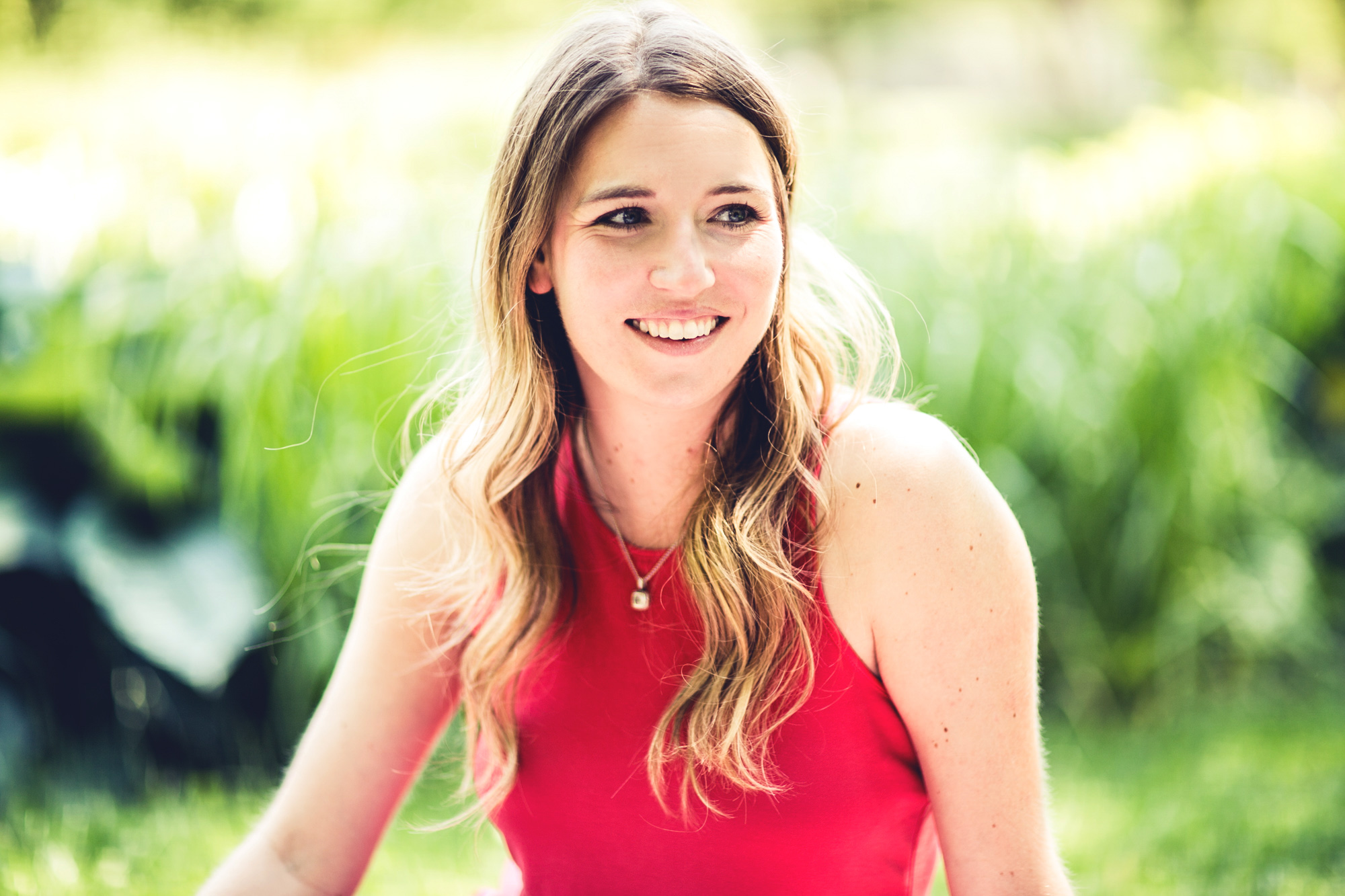

Who is a strong woman you look up to?
In the nonprofit space, I would say it is Lindsay Avner. Our ages line up. It’s been an inspiration to me that she created Bright Pink [a national nonprofit focused on the prevention and early detection of breast and ovarian cancer in young women] when she was 23 and that she didn’t do it when she was in her 30s when she had built a separate career and had money to invest in it. She also identified a problem that didn’t have a solution and I think she’s built a great brand. I can tell that there’s a lot of strategy and thought that goes into what they do. They don’t just take everything that comes their way. They’re very strategic and thoughtful about their growth and how they’re out in the world.
What’s your favorite summer activity?
Just being outside and not having to put on a jacket is one of my favorite activities in Chicago. Once the winter is over, you have to embrace the next few months. I try to just get out as often as possible— grilling outside, taking walks, sitting outside on a patio. No matter what it is, it all has to be done outside.
Are there any quotes that you live by?
The background on my phone is, “You got this.” I feel like it’s a really simple daily reminder. It’s going to be okay. There are a lot of quotes that I run across that I save. I have a words-of-wisdom Pinterest board.
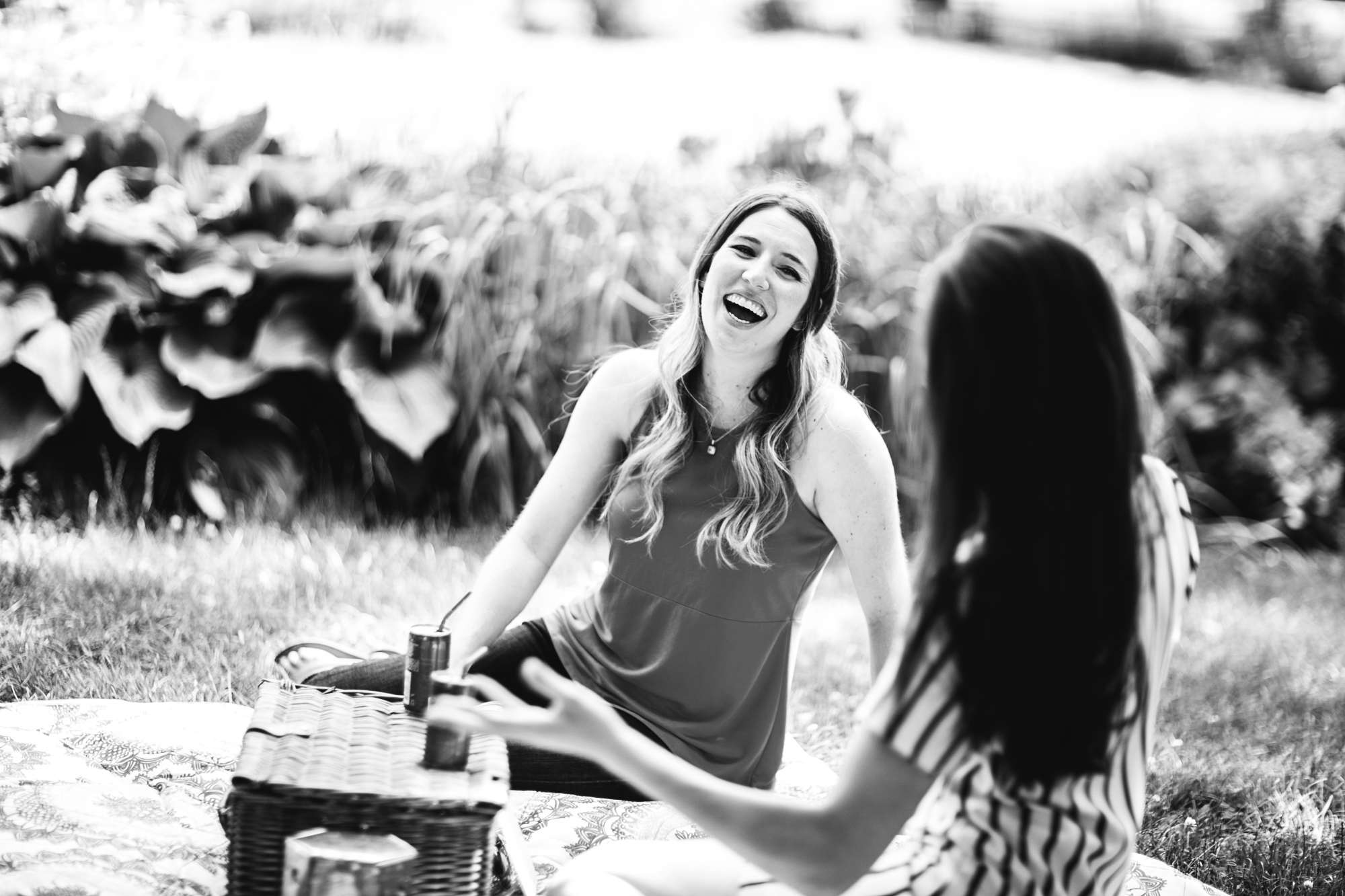
Where do you see Culinary Care in 10 years?
Our plan right now is to put more systems in place. We get requests from across the nation, which reminds me why I started. People are like, “Who’s doing this out there?” Most recently a 16 year-old cancer survivor wanted to bring meals to people in Seattle. She didn’t know how to do it on her own or where to start. She reached out to us to see if we could help her. We get those requests on a weekly basis so our goal right now is to meet that demand and internally grow our programs. When we started the organization it was about getting people meals every single day for months. We had to start somewhere. Our first question was, “How are we going to find patients?” So we partnered with hospitals. Then it was, “How do we get them meals?” So we partnered with restaurants. From there it’s been, “How do we get a more nutritional focus into the meals that we’re providing?” Our next step is doing research and conducting a study to show that malnutrition is a problem. When I met with the Greater Chicago Food Depository they said that in nationwide surveys people are often asked whether they’ve struggled to provide food for their family in the last few months. Why isn’t there a screening process for cancer patients surrounding whether they’ll be susceptible to malnutrition? If people are susceptible we need to make sure they have access to food on a daily basis. From my perspective, providing a bag of groceries is not going to get the job done because patients don’t want to go home and cook food. They need a pre-made meal that’s going to be good every night.
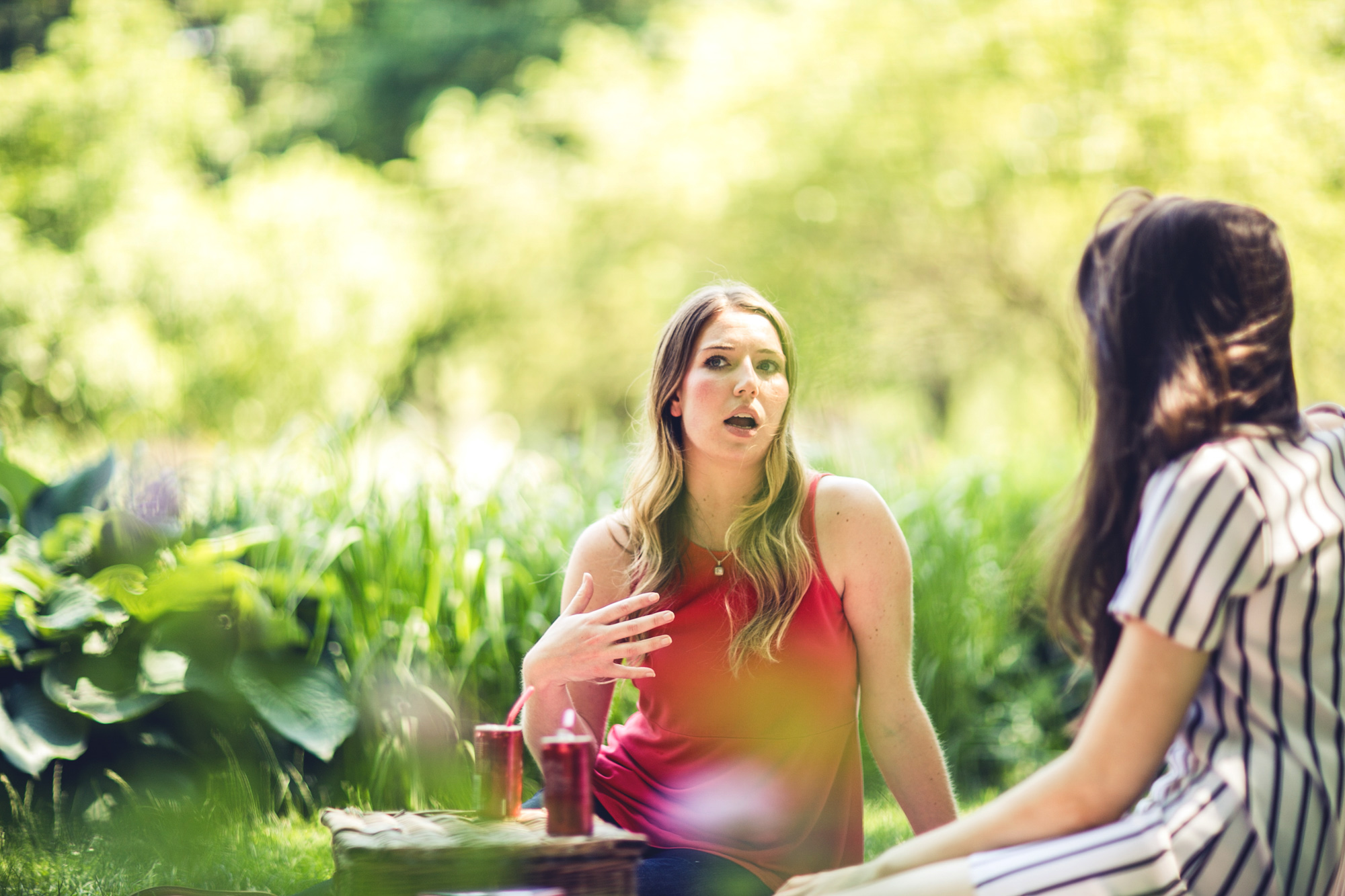
How can our readers get involved?
Right now we have a few different opportunities. If you’re available during the day and you have a car, we open the door for delivery volunteers. The other thing is having people who are brand advocates for us. It’s as simple as going on our website and sharing our cause and motivating someone to donate or volunteer. We can only grow when people know about what we’re doing. I can only do so much myself!
If you could have a drink with anyone, who would it be?
That’s really hard. We live in this world where there are so many empowering women. The first person that comes to mind is Taylor Swift. My head immediately goes to people that have built these amazing brands and they work hard at it. They’re not putting out this perception that it was just done automatically or handed over. Even in the political space, Hillary Clinton has been knocked down so many times but keeps getting back up. That’s so inspiring to me to keep going.

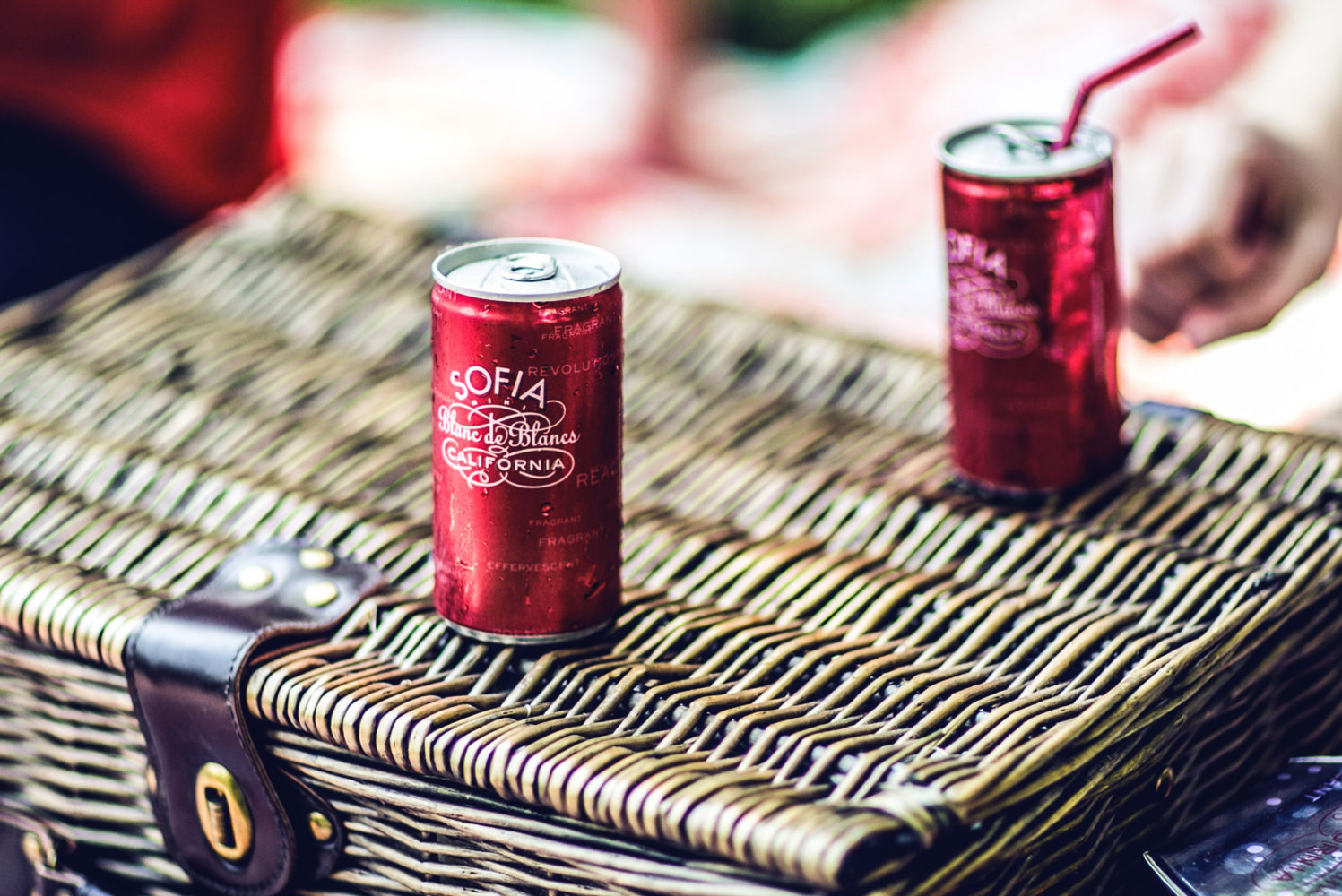
WE’RE CELEBRATING BOLD WOMEN WITH BIG IDEAS WITH SOFIA MINI IN CHICAGO.
READ ALL FEATURES HERE.
Sofia Mini is a single-serving of Francis Ford Coppola’s effervescent Sofia Blanc de Blancs, tasting of fresh juicy pears, summer melon and honeysuckle. Zesty, refreshing, cool and fun, each dazzling pink can comes with its own straw for sipping, so you can take it anywhere—anytime you feel like sparkling.
KIRSTEN MICCOLI PHOTOGRAPHY / A DRINK WITH
Did you enjoy this feature? Subscribe to our newsletter and never miss a drink, we promise we’ll never spam you!

